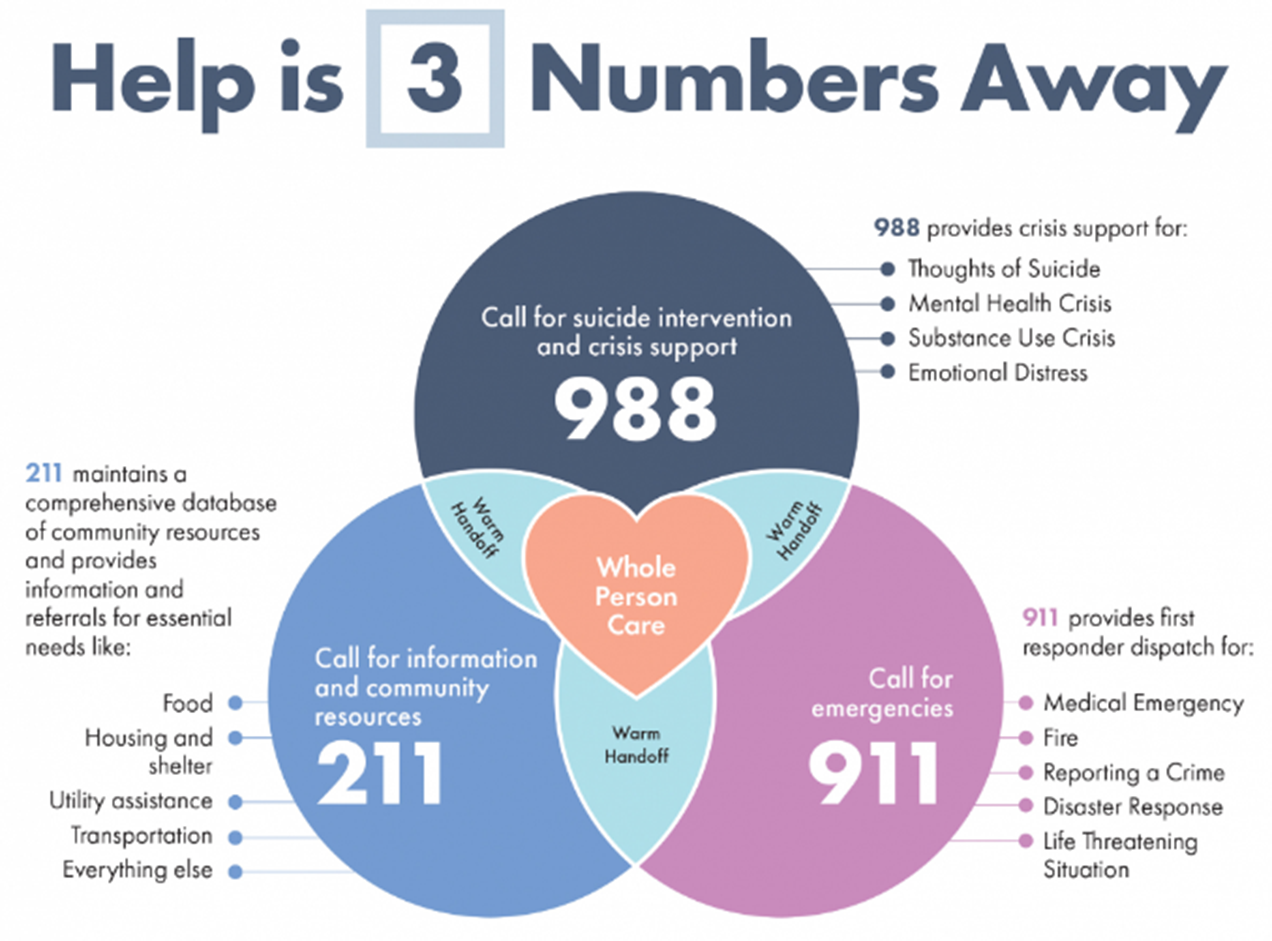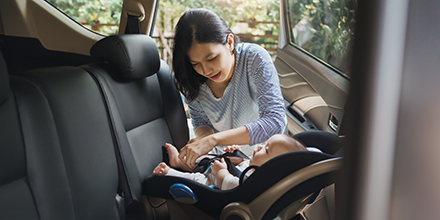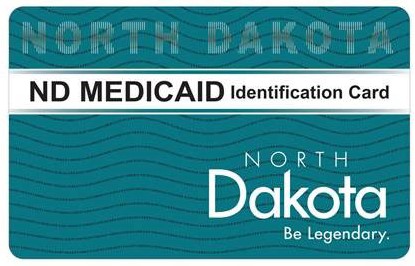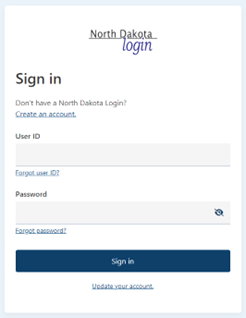
Welcome to our ND Medicaid Member E-Newsletter
We will update you on the programs we offer, share tips for getting the most from ND Medicaid, seasonal reminders for staying healthy, and more as North Dakota aims to be the healthiest state in the nation!

Celebrating moms, parents and caregivers
May is a time when we celebrate our mothers and those motherly figures in our lives. A mother’s love can be the briefest of touches or the longest of hugs.
In recognition of these special people, May 12-18 is Women's Health Week.
In this issue, we are celebrating and supporting our moms, parents and caregivers!
Here to Listen, Here to Help
Caring for and protecting your family is your mission, supporting you is ours! We want you to have access to 24/7 help for the unexpected.
Did you know that help is only three numbers away? Whether you are experiencing a medical emergency, mental health crisis, or needing urgent help with food or shelter, we have a number for you to call.

Call 911 for:
- Medical emergencies
- Fire
- Report a crime
- Disaster response
- Life threatening situations
Call 988 for:
- Thoughts of suicide
- Mental health crisis
- Substance use crisis
- Emotional distress
Call 211 for assistance with:
- Food
- Housing and shelter
- Utilities
- Transportation
- Everything else

Breast and cervical cancer screenings are covered for ND Medicaid members
Breast Health
A woman has a 1 in 8 chance of getting breast cancer during her life. When breast cancer is found early it can be easier to treat, giving you a better chance of survival.
Regular screening tests can help find breast cancer early. A mammogram is the most effective screening tool used to find breast cancer in most women.
Before turning 40, women should talk to their health care provider about when to start screening and how often to re-screen. Breast cancer is more common in older women, but younger women and men can get breast cancer as well. Certain factors are known to increase a woman’s chance of developing breast cancer including:
- Being older than 50
- Having a personal or family history of breast cancer
- Genetic mutation of the BRCA 1 and 2 genes
- Taking hormone replacement therapy for more than five years
- Having dense breasts
You can help lower your risk of breast cancer by:
- Having a healthy weight and getting regular exercise
- Breastfeeding, if you can
- Not smoking
- Limiting alcohol intake
- Limiting use of postmenopausal hormones
Talk to your health care provider about when to begin and how often to continue screening.
Cervical Health
Cervical cancer screenings are important because a woman usually doesn’t have any signs or symptoms of cervical cancer. Routine cervical cancer screenings are very effective for preventing cervical cancer and deaths from this type of cancer. A pap test and/or HPV test are the best ways to find cervical cancer early.
You can lower your risk of cervical cancer by:
- Getting regular screenings
- Getting follow-up procedures if you had an abnormal test
- Getting the HPV vaccine
- Not smoking
Talk to your health care provider about when to begin cervical cancer screening, which test should be done, how often to test and if you should get the HPV vaccine.
Spread the word!
If you know of someone who doesn’t have ND Medicaid coverage and needs help getting screened for breast and cervical cancer, let them know about Women’s Way.
Women’s Way may provide a way to pay for screenings. You can call Women’s Way at (888) 449-6636 or go to the website.

Home Alone: Is your child ready?
Summer will soon be here. Parents may wonder if their child can be left home alone.
North Dakota Health and Human Services has a guide to help you know if your child is ready for this big step.
Answer these questions to ensure your child will be safe.
- Do they know how to respond in an emergency and who to contact?
- Is there a phone they can use to call for help?
- Has your child matured enough to stay home alone or care for others?

We'll help you know they're riding safely
North Dakota Health and Human Services wants to help you keep your child safe when riding in a vehicle.
Visit this website to:
- Learn when to transition your child through rear-facing car seats, forward-facing car seats, boosters and seat belt use
- Read tips on selecting, installing and registering your child’s car seat
- Find a car seat checkup event to have your child’s car seat checked by a certified child passenger safety technician. You will learn how to install your car seat, safely secure your child, choose the correct car seat and check for recalls.

WIC is celebrating 50 years
For 50 years, the Special Supplemental Nutrition Program for Women, Infants, and Children (WIC) has been helping eligible pregnant women, mothers who breastfeed, infants and children under the age of five.
WIC provides nutrition and breastfeeding support, food, health screenings and referrals to services.
If you are a ND Medicaid member, you can apply for WIC.
WIC staff will do a health review (check height, weight, hemoglobin and ask nutrition questions) on your first visit.
You will receive an eWIC card to buy foods like fruits, vegetables, milk, whole grains, eggs, infant formula and baby food at your local grocery store.
Here’s to 50 more years of helping mothers provide for their young children!

Hey mom, we've got you covered
Did you know new moms remain covered by ND Medicaid for 12 months after the day their baby is born regardless of their financial state?
New moms, find out more about your extended coverage!
 Your oral health is important during your pregnancy
Your oral health is important during your pregnancy
You may be more likely to develop gum disease and cavities when you are pregnant.
The American Dental Association (ADA) recommends pregnant women:
- Eat a balanced diet
- Brush their teeth well twice a day
- Use ADA-approved fluoride toothpaste
- Floss daily
Your oral health matters to your baby’s health. You can pass bacteria from your mouth to your newborn's mouth. Some of these bacteria can cause cavities.
Routine dental care during and after pregnancy is safe and important!

Pre-plan when you can
As parents, we lead our families in showing respect and meeting expectations. We can practice these skills in our health care too! A few things to remember as a patient are:
Cancel appointments as soon as you know you can’t attend: Things come up which can prevent us from attending our health care appointments. When that happens, call your provider, or use your online portal right away to cancel and/or reschedule. Ask to be on a cancellation list if you need to be seen by a provider sooner than later. Some health care providers have apps you can get on your phone.
Pre-plan your health care: Make regular health care appointments ahead of time, such as vaccines, yearly wellness checks and sports physicals. Schedule summer well-child checks and combine them with sports physicals!
Ask about your ND Medicaid coverage: Ask your provider if ND Medicaid will cover your medications, supplies or specialist visits. Look at our Medicaid Member Handbook to learn more about your coverage. Call and ask if the provider accepts ND Medicaid and is seeing new patients before you make an appointment with a new provider.
Know where to go for treatment:
- Provider's office:
- Services: Make an appointment with your provider for yearly wellness checks, vaccines, health concerns that are not likely to become life-threatening or conditions that may be causing pain that you can manage.
- Wait: Same day appointments may or may not be available, but you will have less wait time at the office because you have an appointment.
- Urgent care clinic:
- Services: If you are not having a medical emergency, but you cannot manage your pain or illness or your condition is getting worse, you could be seen at an urgent care clinic (or walk-in clinic). Most can offer bandaging, medications, X-rays and lab tests.
- Wait: They are likely to be open outside of normal office hours or when your regular provider cannot offer a timely appointment. You can walk in and be seen that day, but you may wait longer in this waiting room than at your provider’s office, depending on how many patients need to be seen.
- Emergency room (ER):
- Services: ERs are meant to treat life-threatening conditions like uncontrolled bleeding, extreme fever, severe cuts, difficulty breathing or broken bones. They can offer minor procedures, surgeries, life support, diagnostic tests and more.
- Wait: ERs have limited space and have long wait times. You will be seen the day you arrive, but this depends on how many patients are at the ER and which patient’s situation is most serious.
Before going to an ER, decide whether you can be treated at an urgent care or your provider’s office.
Helpful Medicaid tips

Do you need a new Medicaid card? Do you need to know your client ID or case numbers? You can contact our Medicaid Eligibility Call Center for help.
- Call: 1-844-854-4825
- 711 (TTY)
- Email: medicaidcc@nd.gov

You can find ND Medicaid-related information at www.hhs.nd.gov. Simply type what you are looking for or type “Medicaid” in our search bar. Our website will suggest pages to help you find the information you need!
 Sign up for the Self Service Portal (SSP) to complete a review, update your information, upload documents and view notices online.
Sign up for the Self Service Portal (SSP) to complete a review, update your information, upload documents and view notices online.
Sign up for the SSP
Get help using the SSP
 Sports Physicals + Well-Child Checks = A Big Win
Sports Physicals + Well-Child Checks = A Big Win
Are your kids playing fall sports? It is recommended that you get their sports physical done after mid-April, but before school starts.
Now is a perfect time to make an appointment for their sports physical!
Do you want to save time and money? Get your child’s well-child check AND sports physical done together!
ND Medicaid may be able to pay for your child’s sports physical during their well-child check when you make an appointment with your provider for both.
Translate our website
 Look for this icon in the top, right corner of our webpages.
Look for this icon in the top, right corner of our webpages.
